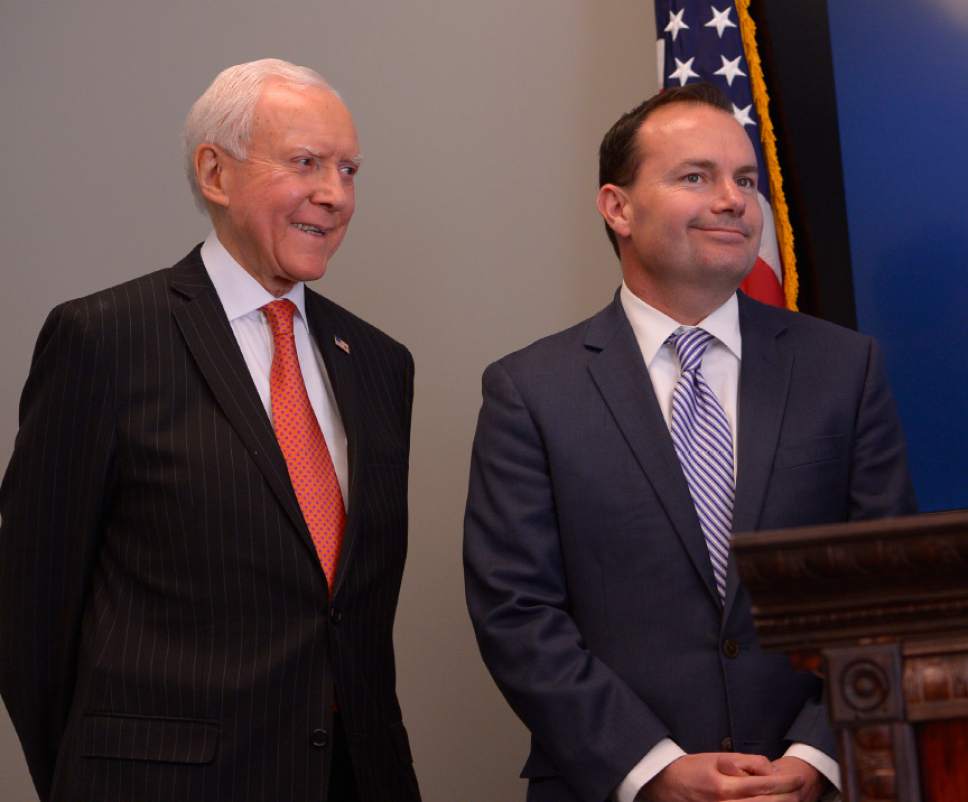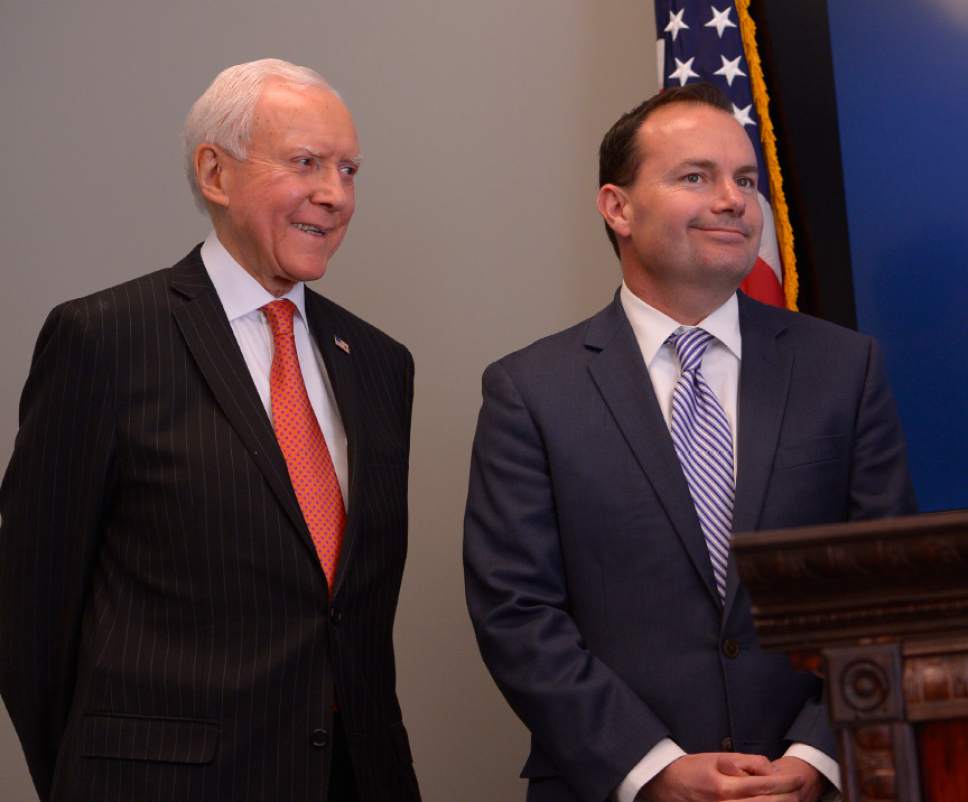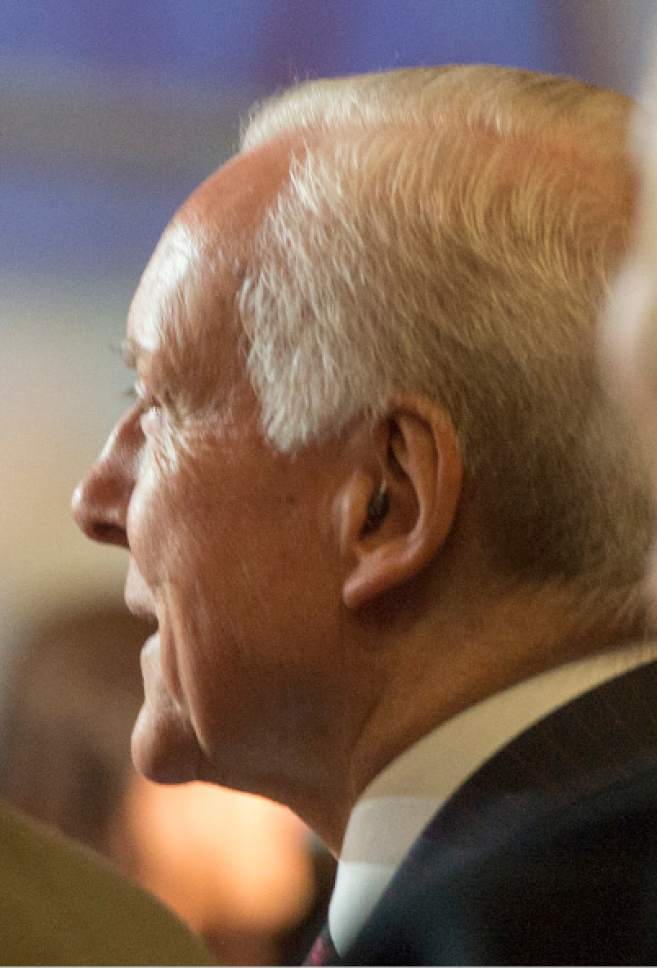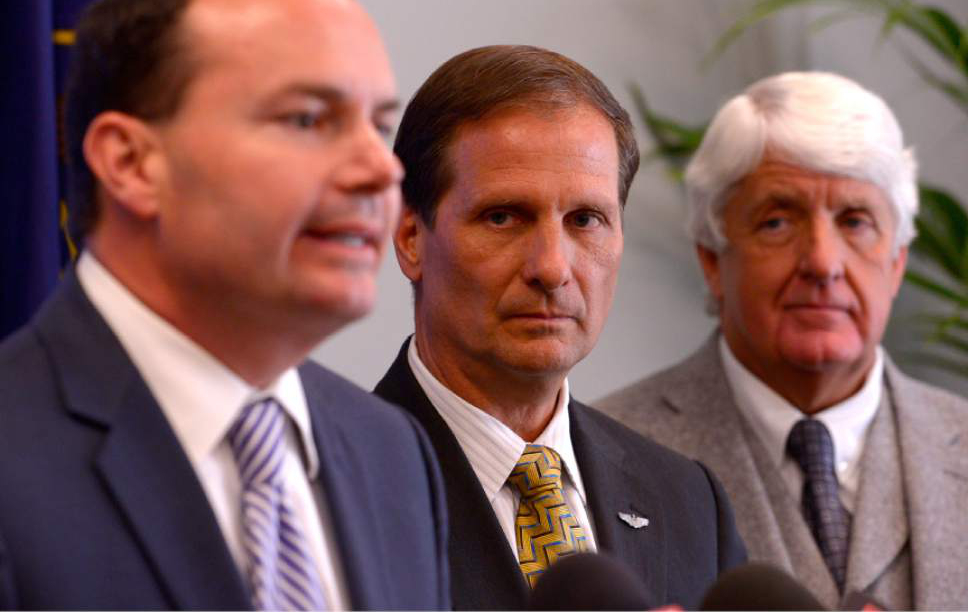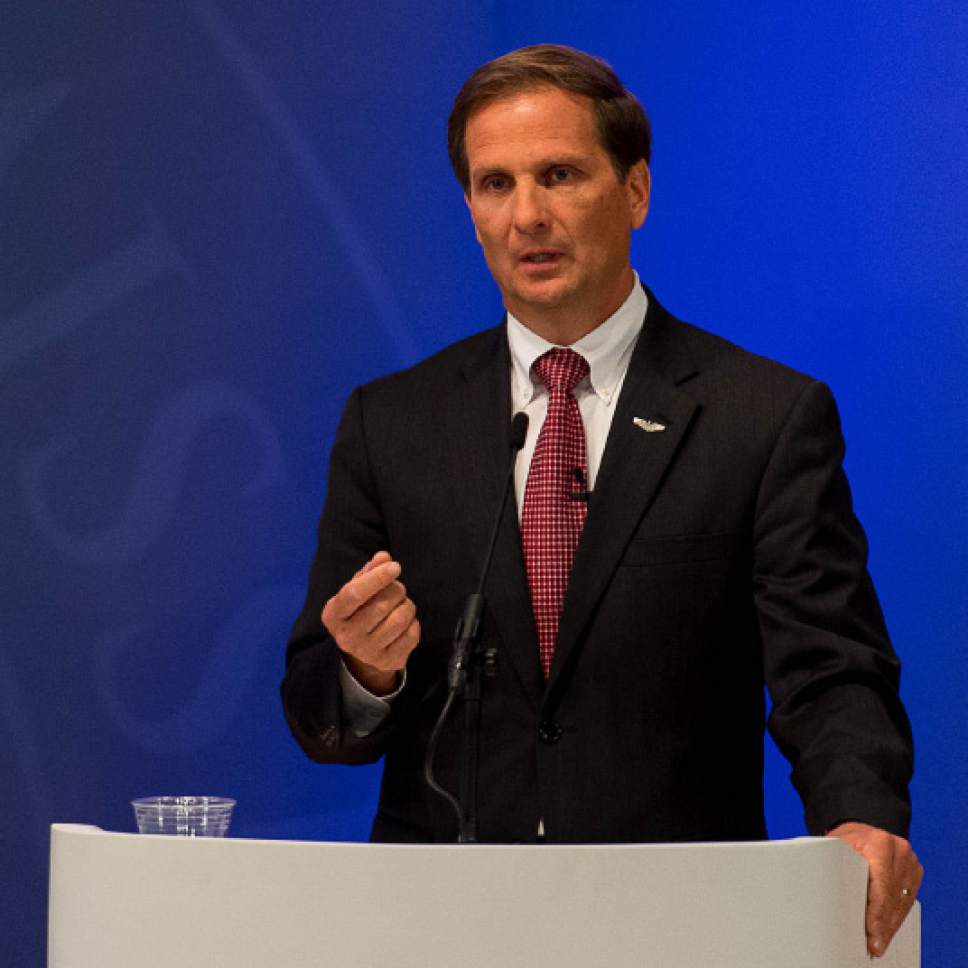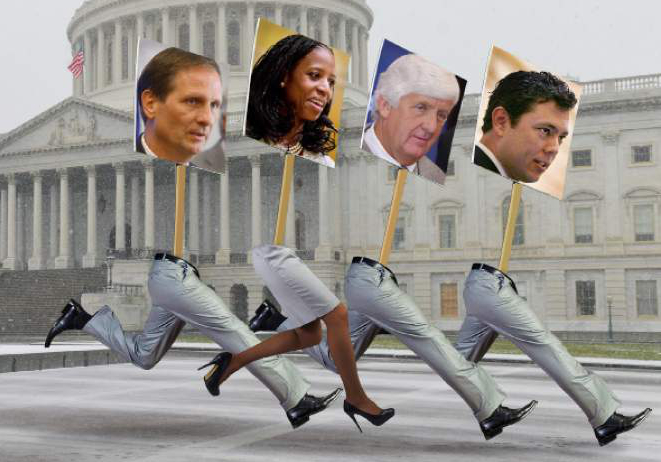This is an archived article that was published on sltrib.com in 2016, and information in the article may be outdated. It is provided only for personal research purposes and may not be reprinted.
Washington • Utah's four House members voted the same way nearly every time last year, and it's no accident.
Unlike Utah's senators — Republicans Orrin Hatch and Mike Lee, who cancel out each other's vote on about every fifth roll call on issues ranging from cybersecurity to highway funding — a Salt Lake Tribune review of 2015 congressional votes found that Republican Reps. Rob Bishop, Jason Chaffetz, Mia Love and Chris Stewart were on the same side 94 percent of the time.
" 'Cause we're all brilliant," jokes Bishop, the longest-serving member of the House delegation from Utah, having served since 2003.
Actually, Bishop says, it's a result of increased coordination.
"The four of us philosophically are very similar," he says. "And we do spend a lot of time, much more than ever before, talking about these issues, trying to hash them through amongst ourselves."
Love, a freshman member, calls it a "united front" by the Utah lawmakers.
"You're going to get a little diversity of thought because we do have different districts," she says, "but when it comes to issues that affect Utah, you better believe we're going to be working together."
Still, there are times when they just have a difference of opinion, and those can expose some interesting philosophical splits on issues ranging from cancer research to arming police with military-grade weapons.
Last June, as the House was debating a bill to fund the Department of Defense, Democratic Rep. Hank Johnson of Georgia offered a one-line amendment that would have forbidden any of that money to go toward transferring mine-resistant ambush military vehicles to local law enforcement.
Utah's Chaffetz, Love and Stewart voted against it, wanting the military equipment in police hands. Bishop disagreed.
"I had had some constituents who had questions about it," Bishop says, "and so did I."
He wanted to wait for the Defense Department to do another study on what it does with excess military equipment, though Bishop adds that his vote wasn't an all-out, no-more-military-equipment-ever stand.
"It wasn't a ban, like, 'hell no,' " Bishop says. "It was the idea of this is kind of a stretch on what police equipment ought to be — like armored Humvees — so let's review it first and then we can visit it again."
—
Schools, cancer awareness • Bishop also broke with his Utah colleagues when he supported a study by the Department of Education to look at school start times. Unlike the others, he thought it was a good idea.
"This is one of the few things that fits into what [the Department of Education] should be doing that they haven't done in decades," says Bishop, who taught at Box Elder High School earlier in his career. "The other element is, I think clearly, as a former teacher, we start schools too damn early."
Bishop, Love and Stewart supported a measure last year to create a commemorative coin to support breast cancer awareness, but Chaffetz was one of just nine lawmakers who opposed it. The House passed the bill — that would authorize 50,000 pink $5 coins to be sold to collectors — but Chaffetz argued it's a pointless exercise and not something the federal government should be doing.
"The coin is not going to cure cancer," Chaffetz said.
Chaffetz, though, was the lone Utahn to support the 21st Century Cures Act, which would pump $9.3 billion into the National Institutes of Health during the next five years to speed up the process to get promising drugs and medical devices to market. Bishop missed the vote, and Love and Stewart opposed the measure.
Chaffetz, noting that his mother and father died of cancer, says he's all for spending more on research to eradicate the disease.
"We need to be having an all-out war on cancer and other diseases," he says.
Chaffetz also split with his Utah colleagues on an amendment that would ease travel restrictions by air and ferry to Cuba. He supported the effort while Bishop and Love said no; Stewart missed the vote.
"Cuba was the only place in the world that, as an American, my federal government wouldn't allow me to travel," Chaffetz said, noting he could go to North Korea and Iran but not America's neighbor. "We need more travel to Cuba, not less."
As for Love, she cast her vote against a bill amending the Safe Drinking Water Act to study the risk of algal toxins, while her Utah colleagues supported it.
Love, the former mayor of Saratoga Springs, which abuts Utah Lake, says the legislation wouldn't have fixed anything, but just required an Environmental Protection Agency report, one that she maintains isn't needed.
"I guarantee you the EPA doesn't know more about that lake than the surrounding cities and the Utah Lake Commission," she says. "I thought it was a waste of taxpayer dollars to give us a report on something we already knew. To me, it was just redundant."
—
Hatch vs. Lee • The philosophical divide between Sens. Hatch and Lee is far more pronounced. Lee is a tea-party senator, less willing to compromise on spending bills and confirmations, and more skeptical of military power or government surveillance. Hatch, the longest-serving Republican senator, is more willing to back a negotiated deal. Unlike the House, where coalitions tend to be more important, the senators don't huddle before votes.
Hatch and Lee have split on some major issues, including last year's vote on curtailing the National Security Agency's collection of bulk telephone metadata. Lee sponsored the legislation to halt such a move — leaving the data in the phone companies' hands instead — while Hatch argued against it.
"The American people understand intuitively that it's none of the government's business who they're calling, when they're calling them, who calls them, how long their calls last," Lee said on the Senate floor.
Hatch said proponents of the USA Freedom Act, including Lee, were wrong and that its passage would hamper America's ability to fight terrorist threats.
"I voted against the bill because it will not provide the protections we need and will put the country at risk," Hatch said at the time.
Hatch and Lee also disagreed on the replacement of the No Child Left Behind Act in December, with Hatch supporting the legislation and Lee opposing it.
"This would be a serious setback for America's schools, teachers and students," Lee warned, "one that will have sweeping consequences for decades to come."
Hatch said the bill wasn't perfect, but would help get education back on track; a news release from his office quoted several Utah school officials backing him up.
"This legislation helps fix a broken system that is failing our students," Hatch said. "Once we have passed this reauthorization, our work will be far from over, but we will once again be moving in the right direction."
mcanham@sltrib


